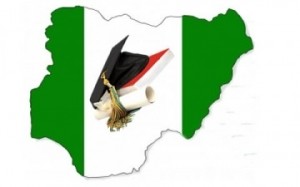
“Give a kid a ball; he’ll play for a day, maybe longer. Give a kid a little power and a chance to dream, and there’s no telling how far that ball will take him.” – The Boston Globe
The cover photo of Saturday PUNCH of August 17, 2013 attracted the attention of some of us who have never President Goodluck Jonathan dazzling football; he did show his stunt on a marble. A full glimpse of the story revealed that Mr. President was feasting ala carte on the ease of an electric football. As classmates at Harvard University, Jessica Matthews and Julia Silverman took a class on engineering for non-engineering students. They were tasked with creating a solution to a problem facing the world and their first idea was a flop.
Matthews told the The Huffington Post in 2011, “I remember thinking, ‘I can’t fail! My GPA needs to be right for grad school! So we remembered a seed of an idea we had before, and that’s where sOccket came from”. The football stores kinetic energy that can then be used by plugging in any compatible plug into the DC outlet built into the ball. The invention is capable of reducing the reliance on dangerous kerosene lamps, and can power an LED light for three hours on just 30 minutes of play time.
It is water-resistant and never deflates. Indeed, self-determination is key. The power problem is certainly not that of America, the inventor recounted; “it was my Aunt’s wedding and we lost power, how many times, is there anyone who has not been affected?”
Neither does Nigeria have a veritable platform for nurturing any conceived idea to fruition. One would have expected a sensitive leader to seize the opportunity of the inspiring message Jessica and her allies brought, so as to nip the guttural condition bestowed on other young Nigerians by the debilitating strike by the university lecturers.
The multiplier effect of our low prioritization of education doesn’t assuage one of fears of the growing dearth of home grown inventions. I appreciate the sense of patriotism shown by Jessica in identifying with her origin and inspiring Nigerian youths at this striking time. Mind you, the new US immigration law under legislative scrutiny does not encourage many Jessicas staying offshore, to continue their sojourn way back home; henceforth, the US can’t afford building people and suddenly losing them to those asleep.
The world is becoming more competitive than ever and I hope the Federal Government will ensure that our home grown education get rightful. There are contending issues across board; only a few days ago, the Kano State government was happy to announce via paid live broadcast its send-off ceremony for SS1 pupils proceeding to a Bilingual College in nearby Niger Republic at a whopping cost of N1bn.
Back home, there are many unsung inventors. Sometime ago, the duo of Duro-aina Adebola and Zainab Bello from Doregos Private Academy, Lagos, invented a urine-powered generator which earned them a bounty of $3,000 in scholarship at the Intel International Science and Engineering fair held in Phoenix, US. In what way has government intervened either with a patent or massification of this product outside the newspaper headlines? It takes absolute self-determination to conquer the depression foisted on young talents by the abysmal state of our education system.
On January 11, 2011, an online portal, africanbrains website, published the lamentation of a 39-year-old inventor, Durojaye Obasanjo, who invented an amphibian car. Wikipedia describes an amphibian vehicle as a means of transport, “viable on land as well as on (or under) water”.
Durojaiye then said the prototype cost approximately N2.5m but if given adequate support from government, the vehicle can be mass produced for the benefit of the masses. The glaringly perturbed inventor rehashed his call once more in 2012 to no avail.
Again, last week, he took his invention to the Lagos street. All I can deduce from the Sahara Reporter video which showcased the invention is the agony of a nation that has lost its value. Must a man hide under an aircraft tyre before getting government’s attention?
Many inventions had been developed in our universities and research institutes, but only a few have been patented, while many research inventions have not been commercialized possibly because government and industries who invest in them through TETFund are not harnessing the outputs.
A University of Benin Professor once revealed his research strength in finding cure for the deadly HIV virus but we all gave him a premature persecution; we all reacted like agents of the West who don’t “believe” in Africa. Research is unended, in a well-coordinated environment, the pains and re-trials beneath research outputs and inventions are well-crisscrossed until a positive result is derived.
Like a havilah of inventors, The PUNCH of June 11, 2013 also reported how Ernest Izevbigie, a Nigerian professor of Biology at Jackson State University, United States conducted a research that revealed that bitter leaf has some medicinal value that can prevent cancer. This research made him the first African to be elected into the National Academy of Inventors, US. Another Nigerian-born inventor, Seyi Oyesola, a who co-invented hospital in a box; according to Wikipedia, Oyesola was fed up with hospitals that were always short in supplies and prone to outages, then Oyesola co-invented hospital in a box, a mini hospital run with solar energy or off grid and completely mobile and the list is endless.
It is not news that our myriad problems had arisen from inept political leadership that has descended to the educational sector. Educational standard has fallen, the university system wallow in poor infrastructure, shortage of PhD academics, erosion of academic values, poor funding, and imbalance regulation.
More importantly, our educational managers should learn from constructive criticisms other than floating unwarranted hit backs, more so, they still flourish in the class of university regulators that approves running of a law programme in a university of science and technology. Above all pun, the Nigeria university system needs repositioning because as much as I try to skip ASUU’s allegation against the National Universities Commission, the harder it becomes, to blend the rots identified in the 418-page NEEDS assessment report side by side the full accreditation status of the examined universities. Indeed, both the National Universities Commission and ASUU members’ engaged for accreditation exercises are on trial.
Research outputs and inventive discoveries are core values of institutions of higher learning; their short and long term investments on beautiful structure alone can’t help. Nigerians are very inquisitive and creative.
Hence, our curriculum must be redesigned to match requisites of a highly competitive society. A normal university is deemed to be self-regulatory; the Visitor, Chancellor, Pro-Chancellor, Governing Council, Senate, faculty board, convocation, and congregation shouldn’t exist for sake of numbers but exist for the sake of needed checks and balances.
How does the university system thrive in the hands of self-seeking political class? Our consistent calls for prudent appointment into Governing Councils seem to have got into deaf ears. We have once seen members of university Governing Councils jostle before the university management for contracts at the shave of their primary academic oversight. On the other hand, those seeking full autonomy for public universities must do so with caution, so as not to bestow undue private university toga on our sick public universities. The Lagos State University experience is not far from us; government must ensure that there is commensurate value for huge fees. Though, good education does not come without a price tag, likewise, our fear of ignorance is as much as that of non-existing value.
However, it is as matter of necessity for us to establish a merit-centric platform for the purpose of mopping up lower and higher scale inventions, this platform should bridge between societal problems and solutions, such platform should draw strength from universities, polytechnics, research institutes and other creative citizens.
To this end, the wide reach of the NUC’s sponsored Nigerian Universities Research and Development Fair should be better exploited to cause wider participation and technical partnership with the National Office for Technology Acquisition and Promotion towards supporting academic and non-academic inventions so that our creative and lofty inventions can rescue our waning intellectual power.


